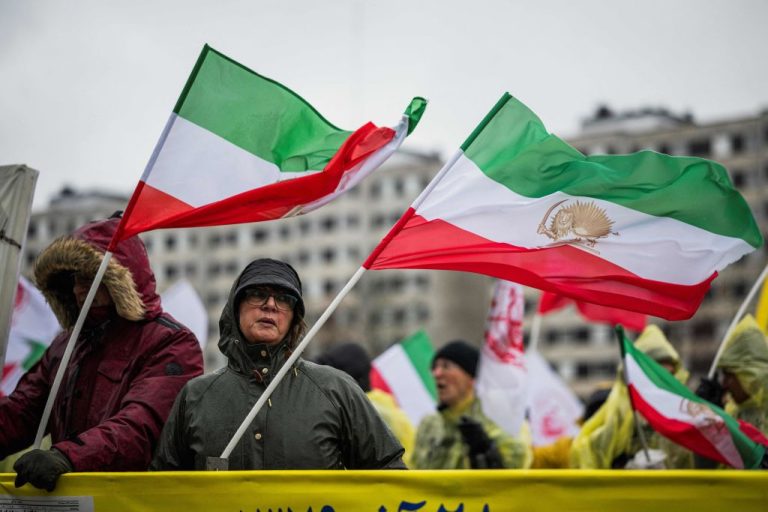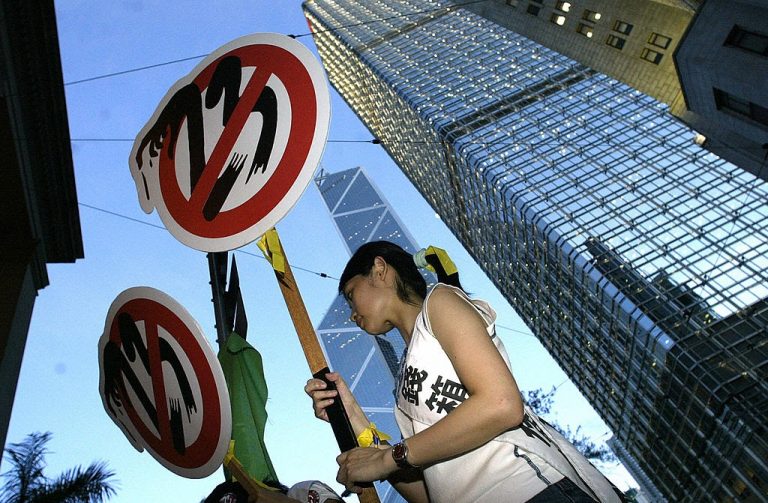The Islamic state of Iran has sentenced two 20-year-olds to more than a decade in prison for the crime of dancing without a headscarf on video for social media as part of the recent anti-regime protests.
Feb. 1 reporting by SBS News stated that 21-year-old Astiyazh Haghighi and 22-year-old Amir Mohammad Ahmadi were convicted by a “revolutionary court” of “encouraging corruption and public prostitution” and “gathering with the intention of disrupting national security” on penalty of 10.5 years in prison.
A 16-second clip of the video was posted to English-language Twitter, showing the pair dancing in front of Tehran’s Azadi Tower. Astiyazh was not wearing the mandatory Muslim hijab head covering in the video, a common protest form utilized by Iranian women in recent months.
SBS noted that the pair were social media influencers who “already had a following in Tehran as popular Instagram bloggers.”
Buzzfeed reported that each have amassed over 1 million followers on Instagram.
Success
You are now signed up for our newsletter
Success
Check your email to complete sign up
However, a same-day report on the sentencing by Reuters stated that Iran’s Mizan news agency, the mouthpiece of the state’s judiciary system, stated that in actuality the couple had received only a five year sentence each, and only for “collusion against national security.”
READ MORE ON TOXIC SOCIAL MEDIA
- TikTok May Be Grooming Young Girls to Develop Tics, Tourettes
- Instagram Use Is Harming the Mental Health of Young Girls, and Facebook Knows It: Report
- Social Media Grooms Youth to Make Impulse Purchases, Worry About Money: Survey
Mizan lamented, “By investigating their case…it is clear that anti-revolutionary forces have falsely reported the charges by claiming each were sentenced to 10 years.”
But the Iran-focused independent news agency HRANA, which SBS cited as the source of their article, told Reuters the pair was charged with “spreading indecency” and “collusion with the intention of disrupting national security.”
SBS cited HRANA, who did not report on the case on their English-language website, as having “cited sources close to their families as saying they had been deprived of lawyers during the court proceedings, while attempts to secure their release on bail have been rejected.”
The figure of 10.5 years in prison each appears to come from HRANA’s Twitter account, which stated, “Two Instagram bloggers #Astiaj_Haghighi and #AmirMohammad_Ahmadi were sentenced to a total of 21 years and additional punishments. On November 1, security forces arrested this couple violently after they published a video on social media showing them dancing in a city square.”
CBS News cited Mizan in a second report as alleging that the couple wasn’t arrested for romantic, hijab-less dancing, but for “publish[ing] a call for a rally on November 4 and called for riots on their Instagram pages.”
“During the riots, they used their page to advertise calls, including the call for November 4,” Mizan claimed.
CBS noted, “While Haghighi and Ahmadi’s social media clip merely showed two young people dancing happily and included no overt reference to the protests or Iran’s hardline Islamic cleric rulers, dancing itself is illegal in the [Islamic] nation.”
Jan. 28 reporting by BBC interviewed several Iranian DJs, who were summarized as having told the outlet that dancing and dance parties, especially to Western music, had become a form of protest following the September of 2022 death of 22-year-old Mahsa Amini.
Amini was allegedly sent to the hospital in a coma three days after being arrested by the Iranian Islamic regime’s so-called “morality police,” where she died shortly afterwards.
In December, news broke that, in order to quell the protest trend of women refusing to wear the hijab, the Iranian government was considering freezing women’s bank accounts.
Iran Member of Parliament Hossein Jalali was quoted by indie news outlets as conflating hijabless women to the same level of problem as “hooligans” and “riots.”
Hussein Celali, a Parliamentary Deputy, was quoted by one outlet as stating, “With the application we are working on, firstly, a message will be sent to the phones of women who do not comply with the headscarf rule, if this is not enough, they will be warned, and in the third stage, their bank accounts can be closed.”

















